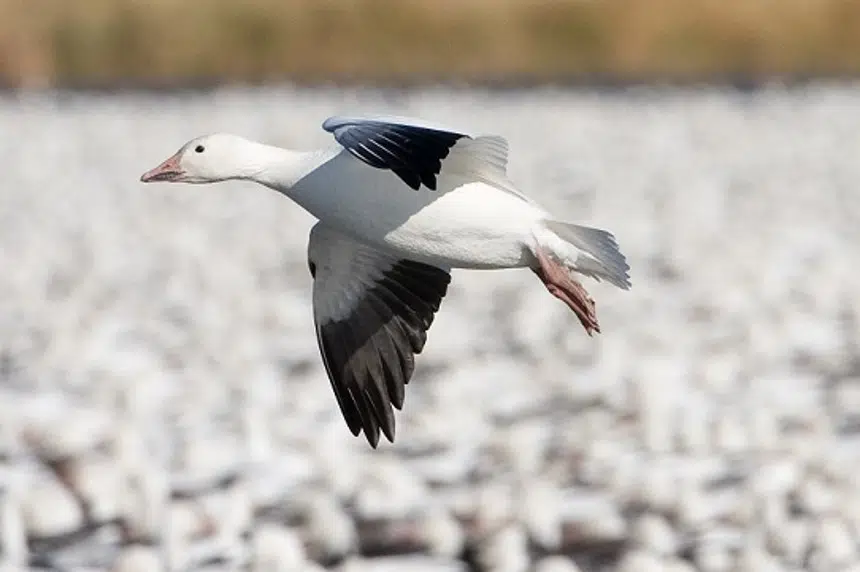A case of highly pathogenic avian influenza (HPAI) has been detected in Saskatchewan, prompting a warning to poultry producers in the province.
The Ministry of Agriculture said Friday that producers with flocks of all sizes should follow all necessary biosecurity protocols after the strain of bird flu was detected in a snow goose found near Elrose.
It’s the first time since 2007 that a case of HPAI has been found in Saskatchewan in either commercial poultry or wild birds.
HPAI has been detected in poultry and wild birds in the United States and in several Canadian provinces in recent months.
“Protecting commercial flocks includes preventative measures such as keeping wild birds away from poultry flocks and their food and water supply, limiting visitors, and monitoring bird health,” the Ministry of Agriculture said in a release.
“Producers should contact their veterinarian immediately if they have concerns about the health status of their flocks. If HPAI is suspected, producers should also contact their local Canadian Food Inspection Agency office.”
Owners of small flocks are being urged to keep their birds indoors if possible to limit their contact with wild birds or places that may have been visited by birds that may be contaminated with HPAI virus.
According to the ministry, strains of bird flu normally don’t result in obvious signs of disease in wild birds. However, this strain has killed some wild birds, including snow geese and Canada geese.
People are urged to call the Inquiry Centre at 1-800-567-4224 or centre.inquiry@gov.sk.ca if they find:
- Clusters of two or more dead waterfowl (such as ducks and geese) or other water birds;
- Dead raptors or avian scavengers (including ravens, crows and gulls);
- Raptors, waterfowl or avian scavengers that appear to be sick; and/or
- Large groups of dead birds (more than 50) of any species.
Reports also can be made to the Canadian Wildlife Health Co-operative at 306-966-5815.
The ministry said the risk of transmission to humans is considered low, but people shouldn’t touch dead birds or wildlife with their bare hands. Protective eyewear and masks also are recommended.
The bodies of the birds should be placed in a plastic bag before they’re submitted for testing.
“This strain of HPAI does not pose a food safety risk,” the ministry added. “Regular food safety and hygiene precautions should be followed when preparing wild game. Hunters should avoid eating birds that are visibly ill.”
More information on avian flu in poultry is available by calling the Ministry of Agriculture’s Veterinary Unit at 1-306-787-2150.











